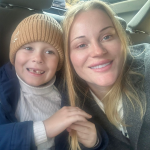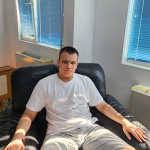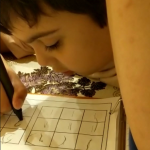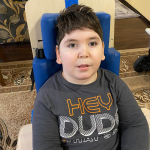Autism and Substance Abuse: Preventive Measures
The Impact of Autism Spectrum Disorders (ASD): Autism spectrum disorders (ASD) affect each person differently. The most attention is often focused on addressing the main challenges, but it is equally important to consider the fact that, starting from adolescence, individuals with autism may develop a dependence on psychoactive substances, which can exacerbate existing problems and worsen their overall physical and psychological well-being. Fortunately, there are strategies to prevent such consequences, which contribute to a healthier and fuller life.
Challenges Faced in Childhood and Adolescence: Even in childhood, individuals with autism often struggle with communication, social interaction, and processing sensory information, which makes navigating everyday life difficult and leads to increased feelings of isolation and anxiety. Many continue to face these challenges during adolescence and when transitioning to independent living. As a result, these individuals are more likely to try to use psychoactive substances to cope with difficulties or at least forget about them.
Recognizing the Issue as the First Step:
- Awareness of this issue is the first step toward preventing or overcoming dependence. To achieve this, it is necessary to provide comprehensive support and acknowledge that each autistic adolescent has their own unique problems and perceptions. General support can be provided by creating an inclusive environment at school, while targeted support can be delivered through therapy methods adapted to individual needs.
Creating a Supportive Home Environment:
- Establishing a positive home environment plays a significant role. A structured daily routine, clear understanding of what to do and when, and the ability to retreat from external stimuli reduce stress levels and alleviate anxiety, which in turn decreases the desire to turn to substances for relief.
Overcoming Communication Difficulties:
- Sometimes the challenges may arise from the fact that individuals with autism do not know how to express their thoughts and feelings. To overcome communication difficulties, alternative forms of expression, particularly visual ones, should be used. Reducing barriers in communication will foster greater openness and serve as an additional calming factor.
Developing Social Skills:
- Equally important is the development of social skills, which can be achieved through participation in group activities or role-playing games. These will help individuals with autism feel less fearful and restricted in social interactions, allowing them to find friends and like-minded people who share similar interests.
Educating About Psychoactive Substances:
- In line with age-specific characteristics, educational efforts are necessary to explain that psychoactive substances can only cause harm and will not solve problems. During such sessions, visual materials should be used, along with simple and clear phrases, and the most important information should be repeated. With this knowledge, individuals with autism will be able to make informed decisions and resist peer pressure to try alcohol or drugs.
Increased irritability, changes in sensory sensitivity, and a refusal to engage in preferred activities may be signs of stress. However, such behavioral changes could also be related to the use of psychoactive substances. In this case, it is essential to immediately consult with trusted specialists. This may help prevent further “experiments” with substances.
A more reliable outcome can be achieved through stem cell therapy, which is a comprehensive method of combating both autism and its symptoms. This procedure involves transplanting stem cells that transform into healthy replacements for damaged brain cells, thereby restoring normal function to the brain and nervous system. As a result, the effectiveness of additional therapies increases.
Stem cell therapy is the most natural, reliable, and effective long-term solution. The benefits of cellular therapy are widely recognized, and it may become the primary method of autism correction in the future. Currently, it is available only at leading clinics worldwide, one of which is the Mardaleishvili Medical Center. This technology is applied by highly qualified doctors with extensive experience and the most modern equipment at their disposal. Additionally, the center’s services are more financially accessible compared to other countries with advanced healthcare systems, and the staff will provide all necessary assistance, including travel planning and accommodation for a short rehabilitation period.
Stem Cell Therapy: A Chance for a Fulfilled Life!
Autism Treatment Center Videos
Autism treatment with own stem cells
Cord blood association congress
International Quality Crown
Autism Treatment Reviews
Autism treatment with own stem cells
The story of Alessandro (6 years old)
Autism Patient Testimonial - Stem Cell Treatment
Clients Testimonials

Feedback from Igor, David’s father (12 years old) Read More

Feedback from Olga, Fedya’s mother Read More

Feedback from Natalia, Radomir’s mother (15 years old) Read More

Feedback from Esther, Samuel’s mother (8 years old) Read More

Feedback from Abibe, Selim’s mother (7 years old) Read More












